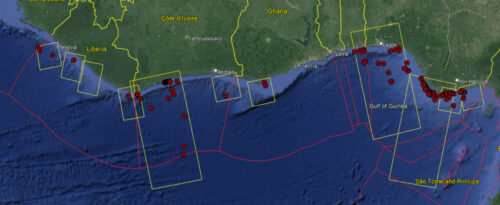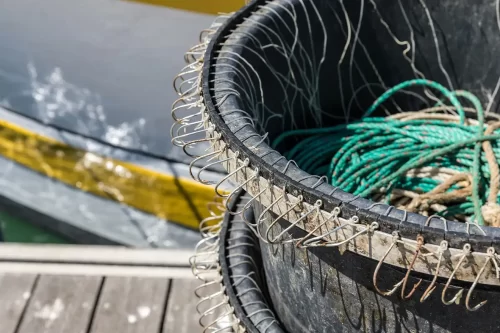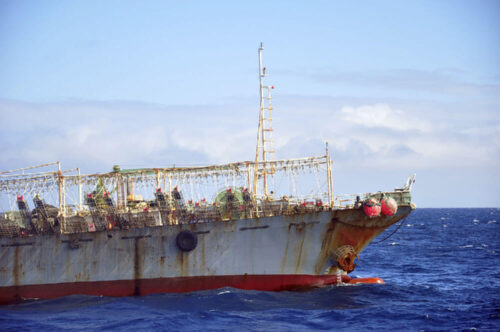Countries embrace transparency-based strategy to promote fair and effective ocean governance
The 34th Session of the Food and Agriculture Organization of the United Nations’ Committee on Fisheries (COFI 34) was held virtually last week. Front and center of the agenda was the need to combat illegal, unreported and unregulated (IUU) fishing, a practice which accounts for up to 1 in 5 fish taken from the ocean. In an effort to articulate the severity and detriment of illegal fishing, the Committee described its threat to the sustainable management of ocean resources, noting the “loss of economic opportunities and negative impacts for legitimate fishers and coastal communities around the globe.”
One of the most significant outcomes of COFI 34 was the call for development of international guidelines on transshipment—the practice of moving catch from one vessel to another—often vital to fishing operations. The Committee expressed concern on the risks of inadequately regulated, controlled and monitored transshipment in relation to IUU fishing and highlighted the importance of technological innovations to strengthen monitoring, control and surveillance of fishing operations. Transparency of vessel information can support such innovations.
Through the publication of vessel and fisheries information, transparency can help drive fair and effective fisheries governance—not just when it comes to transshipment, but all vessel activity. This is an approach that States in Latin America have placed at the center of their efforts to monitor, control and survey their fishing vessels and fisheries.
During COFI discussions, States from the region were clear in their support for transparency. A total of six countries made verbal declarations to enhance fisheries monitoring through open data.
- Panama recognized that “greater transparency in vessel behavior is essential in tackling illegal fishing.”
- Ecuador promoted “transparent management of its exclusive economic zone through the application of high-tech surveillance and monitoring platforms.”
- Chile acknowledged that publishing its fleet record can better support vessel monitoring and that “transparent data allows implementation of policies to tackle IUU fishing’.
- Peru proposed that “greater coordination of surveillance operations would bolster efforts to fight IUU fishing.”
- Costa Rica declared that they will continue taking advantage of the benefits of transparency, and offered to ‘support other States to adopt measures of transparency and in strengthening regional cooperation’.
- Brazil announced their intention to “make monitoring, control and surveillance of vessels and fisheries more transparent and efficient.”

The issues facing our ocean are too vast for individual stakeholders to tackle alone. Last week’s conclusions made it clear that technological advances and collaboration are key tools that contribute to the realization of the United Nations’ 2030 vision of “achieving a better and more sustainable future for all.” Traditional management and enforcement methods are costly and often pose challenges in securing the healthy, productive and resilient ocean on which we depend.

Latin America is moving towards the adoption of fisheries transparency, and we at Global Fishing Watch urge others to follow suit. Continued action is needed to ensure fair and effective governance of our marine resources and increasing transparency is a cost-effective way to strengthen our ability to achieve a sustainable future. The publication of fishing vessel and fisheries information will allow technology and public tools to enhance accountability for vessels operating to be harnessed. It will facilitate information-sharing mechanisms with the aim of preventing, deterring and eliminating IUU fishing and its associated consequences. And, as we are witnessing in Latin America, it will strengthen regional cooperation.

Courtney Farthing manages the global transparency program for Global Fishing Watch.


